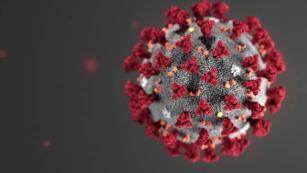https://edition.cnn.com/2020/02/27/health/us-cases-coronavirus-community-transmission/index.html?utm_source=fbCNN&utm_content=2020-02-27T14:00:07&utm_medium=social&utm_term=link&fbclid=IwAR26g2FIPlZlwae7Uu4v0pUN0cNB6hAD78iBSLl-EhVXOJ5Zbv3P6zRSxpA
After CDC confirms the first US coronavirus case of 'unknown' origin, it sends out new testing guidelines
By Sarah Moon, Holly Yan, Jen Christensen and Christina Maxouris, CNN
Updated 2320 GMT (0720 HKT) February 27, 2020
(CNN)After a US patient contracted novel coronavirus and left medical authorities no clues as to where it came from, the Centers for Disease Control and Prevention has begun sending out new testing guidance to health care workers, the top CDC official said Thursday.
A patient in California who has cornonavirus didn't travel anywhere known to have the virus, the CDC announced Wednesday night. And the patient wasn't exposed to anyone known to be infected.
Earlier in the outbreak, CDC guidance to doctors in the United States was that a patient had to have a travel history to China or be a close contact of someone who had been there before being tested, CDC Director Dr. Robert Redfield said.
The new patient who prompted the guidance change was transferred from another Northern California hospital last week.
According to a letter from UC Davis Health, the patient "did not fit the existing CDC criteria for Covid-19, a test was not immediately administered." After doctors persisted in their request for the test, on Sunday, CDC went ahead with testing.
That patient became the first US case of unknown origin, according to the CDC. It could be the first US case of "community spread" of the virus, when the source of the infection is unknown.
"As soon as that case was recognized, we met and we revised our case definition for persons under investigation," Redfield said. "Today, that has been posted (to the CDC website) along with a new health advisory that the recommendation should be when a clinician or individual suspects coronavirus, then we should be able to get a test for coronavirus."
The mysterious nature of this case is significant, said Dr. Dean Blumberg, an infectious disease specialist at UC Davis Medical Center.
"That suggests that the virus is out there in the community, and that means pretty much that everybody's at risk," he told CNN affiliate KCRA. "We don't know who might be carrying it. We don't know who we can get it from."
As for whoever passed the virus to the UC Davis patient, "that other person probably exposed other people," Blumberg said.
"And you have to realize that this virus is so new, that none of us have any immunity to it. So, anybody who's exposed is at high risk of getting infected with this."
Health officials are now trying to trace those who may have been in contact with the UC Davis patient.
"We currently have people in the field working in the community from the local, from the state and also from the CDC," said Dr. Sonia Angell, director of the California Department of Public Health.
"They're contacting any individuals who might have been exposed, and they're isolating them."
But Angell emphasized "the risk to the general public remains low."
The United States has 60 confirmed cases of novel coronavirus, Health and Human Services Secretary Alex Azar said.
- 42 are former passengers on the Diamond Princess cruise ship, the site of a recent outbreak and quarantine.
- 3 are Americans recently repatriated from Wuhan, China, the center of the outbreak.
- 1 patient at UC Davis Medical Center contracted the illness through unknown means.
- Most of the other 14 patients either had recently been to China or are a spouse of someone who recently returned from China.


















沒有留言:
張貼留言